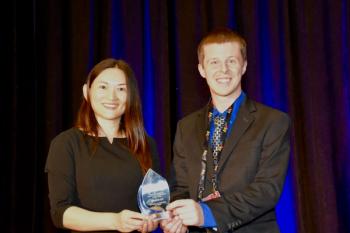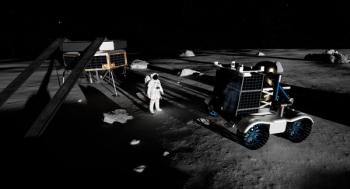
Optical Society, SPIE, and Materials Research Society Name Congressional Science and Engineering Fellows
The Congressional Fellows program aims to bring technical and scientific backgrounds and perspectives to the decision-making process in Congress, and provide scientists with insight into the inner workings of the federal government. Typically, fellows conduct legislative or oversight work, assist in congressional hearings and debates, prepare policy briefs, and write speeches as part of their daily responsibilities.
The Optical Society (OSA), SPIE, the international society for optics and photonics, and the Materials Research Society (MRS) have chosen Jennifer Brookes, a PhD candidate at the University of Washington (Seattle, Washington), as the 2015–2016 Arthur H. Guenther Congressional Fellow. The Fellowship is co-sponsored by OSA and SPIE. Peter W. Winter, PhD, a postdoctoral fellow at the National Institutes of Health, will serve as the OSA/MRS Congressional Fellow. Brookes and Winter each will serve a one-year term working as special legislative assistants on the staffs of U.S. congressional offices or committees in Washington.
Brookes is a PhD candidate in Physical Chemistry at the University of Washington and currently is preparing to defend her thesis, which focuses on understanding the local solvent environment of biologically relevant iron-nitrosyl systems using two-dimensional infrared spectroscopy.
As a Guenther Congressional Fellow, Brookes will combine her scientific and technical background with her interest in policy to help elected officials make complex policy decisions. She is particularly interested in issues regarding energy, natural resources, science, technology, engineering, and math (STEM) education at all levels, and the advancement of underrepresented demographics in STEM fields.
Winter received a PhD in Cell and Molecular Biology in 2011 from the Colorado State University (Fort Collins, Colorado) and earned his B.A in Chemistry from Colorado College (Colorado Springs, Colorado) in 2005. He trained as a National Institutes of Health IRTA postdoctoral fellow in the National Institute of Biomedical Imaging and Bioengineering’s section on high resolution optical imaging, where he developed novel fluorescence imaging tools for application in biological and clinical research. His research has led to the publication of more than a dozen peer-reviewed scientific papers, a book chapter, and invitations to present at conferences and universities around the world.
As the 2015–2016 OSA/MRS Congressional Fellow, Winters intends to use his fellowship to learn more about the legislative process, and leverage his scientific background on a range of policy issues, specifically the pursuit of comprehensive, evidence-based, federal science and technology policy, which he believes is vital to maintaining the United States standing in a changing global landscape.
Each year, following a formal application process, finalists are interviewed and Fellows are selected by a committee comprised of volunteer members from OSA, SPIE, and MRS. Brookes and Winter formally begin the program in early September, after participating in a comprehensive training and orientation process facilitated by the American Association for the Advancement of Science. The new Fellows will then go through an interview and selection process with offices of senators, representatives, or committees on Capitol Hill before choosing the offices in which they will serve.
Newsletter
Get essential updates on the latest spectroscopy technologies, regulatory standards, and best practices—subscribe today to Spectroscopy.




